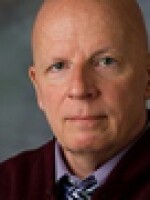Next week, law professors, practicing attorneys and other experts will gather in Albany to discuss the use of drones, running the gamut from targeted killing to domestic drone use to drone journalism.
Two professors are participating in the March 20th forum at Albany Law School. "Game of Drones" will examine the uses and potential abuses of unmanned aerial vehicles in the U.S. and abroad. "I think there's a fascination with the technology," quipped Professor Benjamin Davis, with the University of Toledo College of Law. He says people are taken in by the futuristic concept and what roles drones may play in the years to come.
Talk of deploying drones to monitor citizens nudged Albany Law School Professor Robert Heverly into leaving England after teaching there for five years. He suggests those who once worried about being watched by a "big brother" had no idea what would come to pass. "...in a country where they already have cameras on every corner and where they're talking about putting GPS chips on the car so they tax you based on what time of day you drive on which car, they're just gonna know everything I do, and if I decide to take my bicycle they're gonna see it on a drone..." And now, the same thing is happening in North America. Heverly adds that a group of students at the Albany College of Nanoscale Science and Engineering have formed a "drone club."

Davis explains young people have grown up with advanced technology. "They're sort of digital natives, and so the kind of evolution that's happened they may be more comfortable with. I've had conversations with my son where he said 'facebook is so grandfatherly as a technology' as compared to where they're at now with snapchat and all."
And drones could influence commerce, too. When Amazon unveiled plans to use drones to make deliveries someday, it immediately raised questions about local jurisdiction and accidents.
New technology creates the need for new ways to manage it: some local governments have looked into regulations that would apply to use of material gathered by drones being admissible in court cases. Heverly sees a lot of potential conflicts brewing, some involving property law, others involving negligence. "...it's gonna be one of those complexities like computers. What do we do when a computer fails and something bad happens. We throw up our hands we go 'we don't know how that happened' it's too complex. Same thing with drones. The drone company's gonna say 'we made it just fine. I looks like what happened is some radio interference from some sort of thing that we couldn't have predicted. So we didn't do anything wrong. It's not our fault. he person who created the interference might say 'I didn't know the drones would be in the area. It's not my fault.' You're gonna have issues where a drone crashes into a house or a yard. So you're gonna have the uncertainties of those kinds of things when they become pervasive, which I think we're kind on the path for them to be."
Davis and Heverly will appear with several other speakers including Nicholas Rostow, Distinguished Research Professor at the National Defense University, who will deliver a keynote address on the use of drones within the context of the laws of war, as well as the president's constitutional authorities.

Game of Drones
The Uses and Potential Abuses of Unmanned Aerial Vehicles in the U.S. and Abroad
Thursday, March 20, 2014
1:00 p.m. - 5:00 p.m.
Presented by the Albany Government Law Review, Game of Drones will bring law professors, practicing attorneys and other experts together to discuss such topics as the use of drones for targeted killing, domestic drone use, and drone journalism.
Nicholas Rostow, Distinguished Research Professor at the National Defense University, will deliver a keynote address on the use of drones within the context of the laws of war, as well as the President's constitutional authorities.
Other speakers will include:
Meg Ambrose, Georgetown University
Judge James Carr, U.S. District Court Northern District of Ohio
Benjamin Davis, University of Toledo Law School
Robert Heverly '92, Albany Law School
Stephen Vladeck, American University Washington College of LawMark Zaid '92, James Madison Project and Mark Zaid, PC
The symposium, which will be comprised of two panels in addition to the keynote, is free and open to the public. A reception will follow the event.
For more information, contact dtedesco@albanylaw.edu or 518-445-3208.







